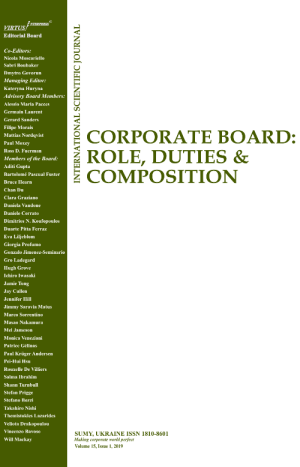
COEXISTENCE OF CONTRASTING PRINCIPLES IN CORPORATE GOVERNANCE: TWO TALES OF JAPANESE FIRMS
Download This ArticleTaeyoung Yoo
Abstract
The underlying logic that shapes the coexistence of contrasting mechanisms in a firm’s governance system remains unclear. We examine the logic that promotes a hybrid form of corporate governance in functional terms. The empirical analysis of Japanese firms shows that a firm’s reliance on capital markets for resource acquisition facilitates its adoption of shareholder-oriented mechanisms, such as committee systems. In contrast, corporate performance is still influenced by some of Japanese society’s characteristic governance mechanisms, such as bank ownership. This finding illustrates that contrasting governance mechanisms coexist in a given system owing to their respective or interacting contributions to corporate performance.
Keywords: Committee System, Corporate Governance, Japan, Relationship-Based Model, Shareholder Orientation
How to cite this paper: Yoo, T. (2015). Coexistence of contrasting principles in corporate governance: Two tales of Japanese firms. Corporate Board: role, duties and composition, 11(2-1), 227-240. https://doi.org/10.22495/cbv11i2c1art6



















